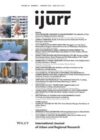The relationship between local scale and participatory democracy is one of the main issues of normative theory of democracy. This article tries to show that the development of this model of democracy also depends on institutional factors. In his political opportunism hypothesis the author proposes that local governments have to develop adaptive strategies to make electoral victory compatible with offers of opportunities of participation: on the one hand, because the parties have to make government or opposition action compatible between local and central political levels; on the other, because the supply of participation presupposes the redistribution of power among local interest groups and the possibility of imposing limits over local government actions. To test this hypothesis, the author analyses data on citizen participation among Italian and Spanish local governments by qualitative comparative analysis (QCA). In conclusion, the author argues that political opportunism could limit local democratization and new urban governance initiatives.
Details
Written by:
Clemente J. Navarro Yánez
Digital Object Identifier (DOI)
10.1111/j.0309-1317.2004.00553.x
About DOI
Read full article as PDF
Read full article as HTML
See the references for this article
